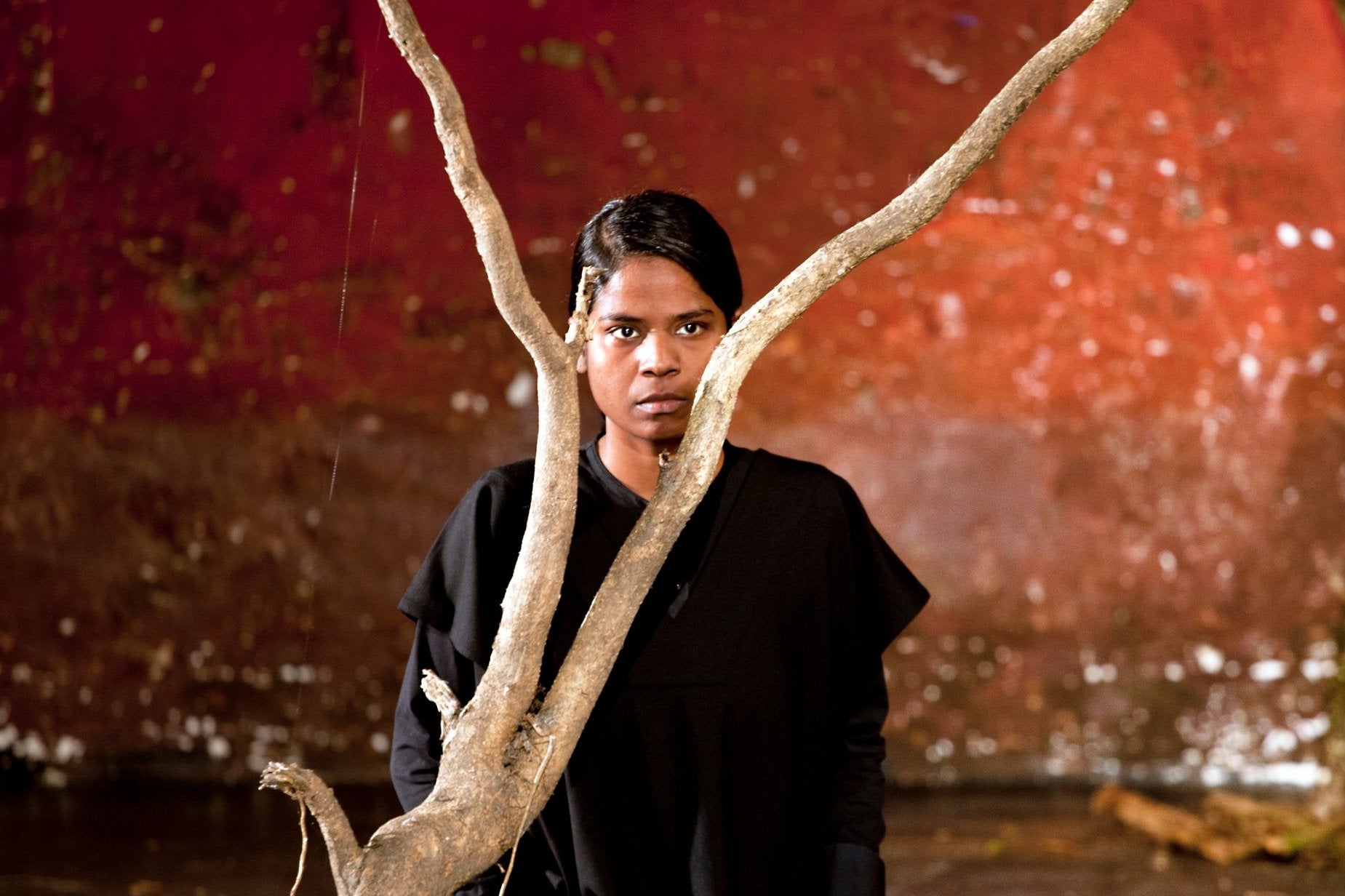The Prisoner, Royal Lyceum, Edinburgh review: A limp, wafer-thin evening
It would be a crying shame if this listless tale of family abuse and penance were to bring down the curtain on Peter Brook’s long and influential career

Your support helps us to tell the story
From reproductive rights to climate change to Big Tech, The Independent is on the ground when the story is developing. Whether it's investigating the financials of Elon Musk's pro-Trump PAC or producing our latest documentary, 'The A Word', which shines a light on the American women fighting for reproductive rights, we know how important it is to parse out the facts from the messaging.
At such a critical moment in US history, we need reporters on the ground. Your donation allows us to keep sending journalists to speak to both sides of the story.
The Independent is trusted by Americans across the entire political spectrum. And unlike many other quality news outlets, we choose not to lock Americans out of our reporting and analysis with paywalls. We believe quality journalism should be available to everyone, paid for by those who can afford it.
Your support makes all the difference."I was for a time in a faraway land,” begins Peter Brook and Marie-Helene Estienne’s story, setting the tone for a tale that arrives on the Lyceum stage – lightly strewn with broken branches and twigs to conjure a forest – like a cross between a warped fairy tale and a Greek tragedy.
The words are spoken by Donald Sumpter’s traveller from the West who is bringing a story home – just as travellers have returned from Africa and the East with exotic tales over hundreds of years of empire.
Also, just as Brook – now 93 and still as capable of making moments of quiet magic on an empty stage – has done himself with many theatre pieces, including The Conference of the Birds and most famously the Mahabharata.
This is Brook’s own story, inspired by a trip to Afghanistan many decades ago where he was told about a man who had been sitting on a wooded hill facing a prison for many years. It’s a powerful image and one to which Brook and Estienne have attached a tale.
Mavuso (Hiran Abeysekera) is a young man who, on arriving home and discovering his father and young sister (Kalieaswari Srinivasan) in bed together, slaughters his dad. It turns out it was not out of outrage but because he too lusted after his sister. Mavuso’s uncle Ezekiel (Hervé Goffings) delivers a crippling traditional punishment to his nephew, and then the law demands imprisonment.
But wise old uncle Ezekiel – although not so wise that he was fully aware of the abuse of his niece and did nothing – instead devises a more fiendish punishment that leaves Mauvuso sitting outside the prison walls but carrying the prison inside him. Removing the prison bars will expand his consciousness.
Maybe the government might like to consider it as a solution for prison-overcrowding and the ineffectualness of incarceration on changing behaviours. Although tackling poverty and deprivation would be a better place to start.
This is a wafer-thin evening, beautifully performed by its international cast, and presented with a pleasing austerity and a less pleasing childlike solemnity as if we are being handed down a dose of spiritual wisdom.
Its studied otherworldliness detracts from its effectiveness. It is beautiful, but never urgent in addressing the difficult world we have made for ourselves which comes with its own prison bars.
In fact, although there are moments of real grace and invention, and I love the abrupt way the story begins and ends, almost as if in mid-sentence, the staging does not invite emotional involvement and is often inert and jerky.
More troubling is the way that the sister is never given a voice – we are told she didn’t mind about the abuse, but she never tells us that herself – and she is banished from the story in a state of guilt, leaving the men centre stage to get on with the important stuff: mulling the nature of redemption and justness. Where is the justice in that?
There’s something uncomfortable too about the way this is framed and presented as a Western traveller bringing back wisdom from a distant land.
The show heads to the National Theatre in September after its Edinburgh run, but it would be a crying shame if this limp evening was the show that brought down the curtain on Brook’s long and influential career.
Join our commenting forum
Join thought-provoking conversations, follow other Independent readers and see their replies
Comments